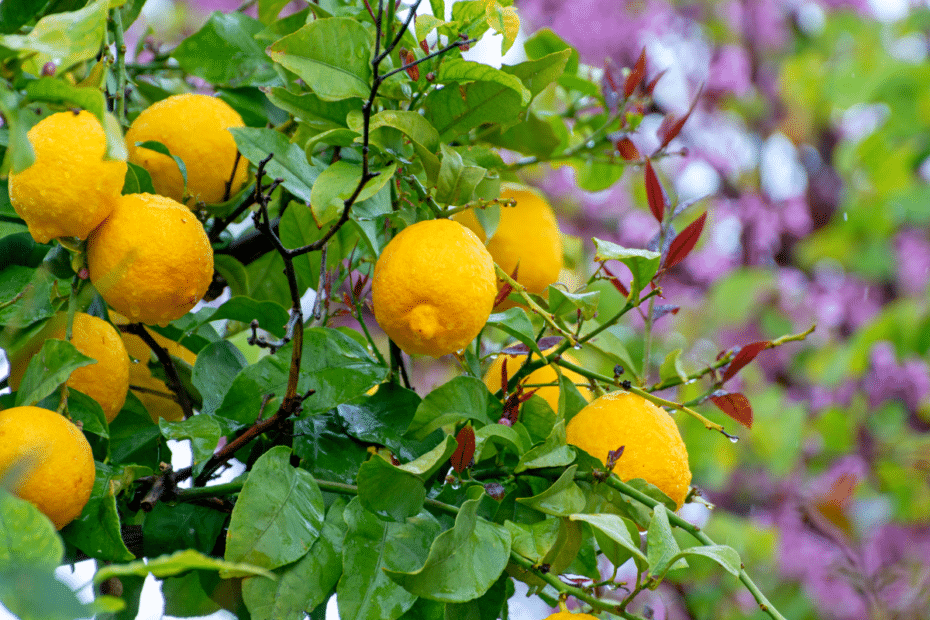As spring deepens and the days grow longer, late April emerges as a decisive time for nurturing your four seasons lemon tree. This unique variety, capable of producing fruit multiple times a year, demands specific care to maximize its yield.
Whether you’re a seasoned gardener or a novice eager to enjoy home-grown lemons, understanding the right steps to take can significantly enhance your tree’s productivity.
Contenus de la page
1/ Encourage fruiting with proper watering
Consistent and adequate watering is indispensable for the successful cultivation of a lemon tree. It’s important to keep the soil moist but not waterlogged to prevent root rot and other potential diseases. Additionally, integrating a specialized citrus fertilizer into your care routine can significantly enhance your tree’s growth and fruit production.
These fertilizers are specifically formulated with the right balance of nutrients, including nitrogen, phosphorus, and potassium, as well as essential trace elements that promote healthy foliage and vibrant fruit. Applying the fertilizer according to the recommended schedule will not only boost the overall health of your tree but also ensure a bountiful and high-quality harvest.
2/ Prune your lemon tree to stimulate fruiting
Regular pruning is vital for maintaining your tree’s overall shape and encouraging fruit production. Follow these basic guidelines for effective pruning:
- Prune your tree between February and March, right before the start of the growing season.
- Remove dead branches and shoots that do not produce flowers or fruits.
- Make sure your tree allows for good air circulation and plenty of sunlight to penetrate through its foliage.
3/ Prevent and treat pests and diseases
Your lemon tree may encounter aphids, scale insects, and other pests, as well as various diseases caused by fungus or bacteria. Here are some tips to safeguard your tree against these threats:
- Spray a mixture of water and black soap on the leaves to repel pests.
- Treat fungal infections by applying a natural fungicide like neem oil or copper fungicide.
- Consider investing in lemon tree varieties resistant to certain diseases for added protection.
4/ Use organic mulch for optimal growth and health
Applying organic mulch around your lemon tree’s base offers several benefits:
- Moisture retention: Mulch helps retain soil moisture, fundamental during hot or dry periods.
- Weed reduction: Preventing weeds from competing for nutrients allows the lemon tree to thrive.
- Protection against temperature fluctuations: Stable soil temperatures protect the roots, promoting healthy growth.
5/ Monitor and manage root health
If your lemon tree is planted in a pot, pay attention to its root health. Tangled roots or an insufficiently sized container can hinder growth. It may be necessary to gently prune roots or transplant the tree into a larger pot to foster proper development.
6/ Thin out flower clusters for improved fruiting
If your lemon tree experiences abundant flowering, consider thinning out some of the flowers. This practice encourages better fruit production by allowing more energy and resources to be distributed among the remaining flowers and fruits.
By implementing these six tips in late April, you’ll be well on your way to nurturing a robust and fruitful four-seasons lemon tree. Emphasize proper watering, timely pruning, pest and disease management, organic mulching, root care, and flower thinning for a generous harvest throughout the year.



Interesting, clear. I’ll follow your guide lines. Thanks a lot.